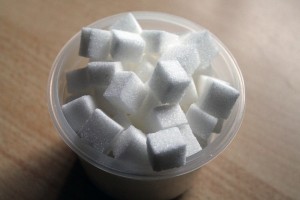‘Where is their God?’
So far in Joel Chapter 2, we’ve seen how Joel has prophesied about an epic invasion of locusts, an invincible army with God at its head. There’s a call to repent on a personal level – to turn to God before it’s too late. For God is gracious and compassionate, slow to anger and abounding in love.
Now Joel calls for a corporate act of repentance. The people have together turned away from the one true God and now they need to corporately acknowledge that they’ve got it wrong.
Blow the trumpet in Zion,
declare a holy fast,
call a sacred assembly.
Gather the people,
consecrate the assembly. Joel 2:15-16
There are to be no excuses Everyone is to be included. Everyone is to come, from the youngest to the oldest. And the priests are to do what they were always intended to do – they are to intercede for the people. To weep and pray and beg for mercy.
Spare your people, Lord.
Do not make your inheritance an object of scorn,
a byword among the nations.
Why should they say among the peoples,
‘‘Where is their God?” Joel 2:17
For if God allows this devastation to take place, His people will be scorned. God Himself will be scorned. The honour of His name will be brought into disrepute. The surrounding nations will look on and conclude that this God has abandoned His people. Broken His promise. This God will be seen to be either unfaithful or not powerful enough. He will be like all the other gods.
And God is not that God.
 The first day of this new year was a Sunday. At church, our new vicar, who’d only been with us less than a month, invited us to take part in an act of repentance. He opened the service with it. At the front was a plate of sugar lumps and a bowl of warm water. The vicar invited us to think about what in our lives was holding us back at the start of this new year. What we needed to confess before God and leave with Him in order to move on in to the year with a fresh start and a new intention. We each went up to the front, picked up a sugar lump to represent whatever we had been thinking about and dropped it into the water. The water, symbolising the presence and love of God, soon dissolved the sugar lump and it could be seen no more.
The first day of this new year was a Sunday. At church, our new vicar, who’d only been with us less than a month, invited us to take part in an act of repentance. He opened the service with it. At the front was a plate of sugar lumps and a bowl of warm water. The vicar invited us to think about what in our lives was holding us back at the start of this new year. What we needed to confess before God and leave with Him in order to move on in to the year with a fresh start and a new intention. We each went up to the front, picked up a sugar lump to represent whatever we had been thinking about and dropped it into the water. The water, symbolising the presence and love of God, soon dissolved the sugar lump and it could be seen no more.
I actually found a release in this symbolic act. I let go of a lack of trust in God and in His people over a particular issue that I had been carrying for the whole of the last year. There’d been some resentment and hurt knocking about in there too. Now I felt more free from what had been dragging me down and more able to embrace fresh hope for the year ahead.
When we had all filed past and dropped our own sugar lump into the water, the vicar picked up another lump and asked ‘What does this sugar lump represent?’. Someone said the sins of the world and he dropped it into the water. He then repeated the question ‘What does this sugar lump represent?’ as he picked up another sugar lump.
He went on to explain that this sugar lump represented the sins of our church. Our corporate sins as the body of Christ in the area. The times we had not reached out in love to the people around us. The opportunities missed. The times when people had looked on and said ‘Where is their God?’. The times when we had hurt each other. When we had stood in judgement. The times when we had sinned in thought, word and deed. The times when we did not love God with our whole heart or love our neighbours as ourselves.
I found this invitation to confess as a church surprising. Courageous. But also inspiring. It was a symbolic act that would set us free from the past and help us move together with intention toward the future.
Moving on together to create a place where no one will be able to ask ‘Where is their God?’ because everyone will be able to clearly see God at work in our hearts and our lives. In this community.
I can’t wait!












